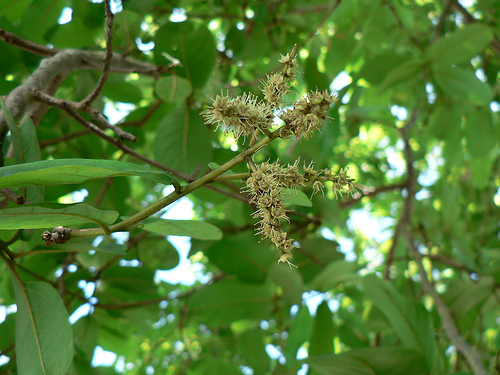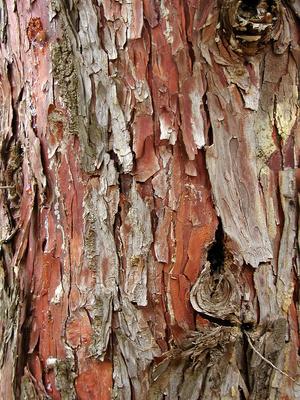 |
|
 |
|
Arjuna Arjuna is a large deciduous tree, commonly found throughout India. Arjuna tree has been used as a medicine in Ayurveda for many thousands of years. This tree is cone-shaped with white bark and elliptic leaves placed in opposite directions. The sap of Arjuna tree is milky white in colour. The flowers are yellowish and fruits are fibrous woody and smooth.
 Quick Facts about Arjuna or Terminalia Arjuna Nomenclature
Common name: Arjuna
Sanskrit name: Kakubha, Partha, Shwetavaaha
English name: Arjuna
Scientific name: Terminalia Arjuna
Bioenergetics Rasa: Kasaya
Guna: Ruksa
Virya: Sita
Vipaka: Katu
Dosha: Decreases Pitta and Kapha and increases Vata
Karma: Bhagnasandhankara, Hridya, Kaphahara, Pittahara, Vrananasana, Vyanga Hara
Habitat Arjuna tree originated from India. It can be found in various different climatic conditions ranging from sub-Himalayan regions to far south in Deccan region, Sri Lanka and Myanmar. It can be generally found along flowing water and marshy areas. This tree grows to about 20 – 25 m in length.
Chemical constituents
The bark of Arjuna tree is used for medicinal purposes and it has been found to contain minerals such as calcium, magnesium, aluminium, and tannins, flavonoids, saponin glycosides and phytosterols. The bark also contains crystalline compounds such as arjunine, arjunetin, essential oils and reducing sugars.
 Health benefits
See Also Health Benefits of Watermelon Seeds, 8 ways to a healthy blood pressure, ways to control high blood pressure without medication, ARJUNA A HEART SAVING TREE, Flax seed nutrition facts, Cashew nut nutrition facts, Health Benefits of Brown Rice, Aloe Vera Juice The New Miracle Drink, Super Health Benefits of Sesame Seeds, Home Remedies for High Blood Pressure, 10 ways to control high blood pressure without medication, Almonds nutrition facts, Health benefits of Walnuts, Health benefits of black pepper, Surprising Health Benefits of Cinnamon, Explore the health benefits of garlic, Health Benefits of Drinking Green Tea, Amazing Health Benefits of ginger, Health Benefits of Turmeric, Best Fruits for Losing Weight, Eating Regularly To Lose Weight, Benefits of Clove in our day to day life, Health Benefits of Neem, Benefits of the Holy Basil (Tulsi), Health Benefit of red Chillies, Healthy Diet Habits, The healthiest way to lose weight , 10 Benefits to Drinking Warm Lemon Water Every Morning, Health Benefits of Apricot, Benefits of Honey in Weight Loss, Health Benefits of Indian Gooseberry or Amla, |
|
|
|
|
|
|
|
All Rights Reserved. Indyabiz.com







